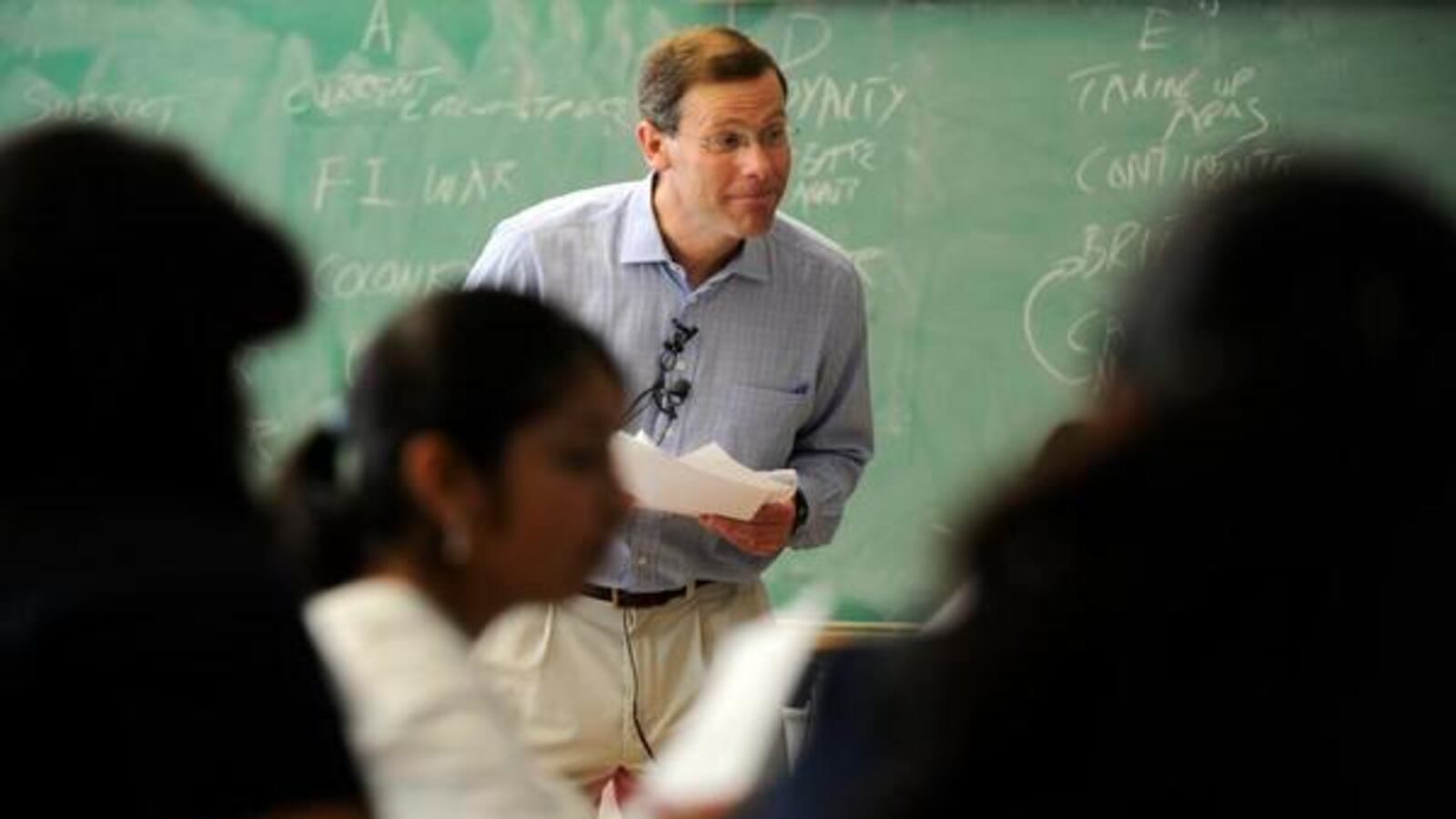Denver teacher Carla Cariño hopes the district’s next superintendent is a bilingual person of color. Ariel Taylor Smith, a former Denver teacher and now an education advocate, wants a leader who tackles school improvement with a sense of urgency. Collinus Newsome, a leader at the Denver Foundation, hopes the search process includes community voices that have been silenced in the past.
These are just a few of the desires community members have expressed in the wake of Tuesday’s news that Tom Boasberg will step down after nearly a decade as superintendent of Colorado’s largest school district.
While the district has released few details about the process for selecting the next schools chief, board President Anne Rowe said Tuesday it’s the board’s most important role and that it will soon schedule a meeting to discuss the process publicly.
The 92,600-student district won’t be without a superintendent immediately. Boasberg‘s contract requires him to serve for another 90 days.
Randy Black, who coordinates superintendent search services for the Colorado Association of School Boards, said large urban districts like Denver typically launch comprehensive national searches to fill superintendent vacancies. On average, such searches take two to three months, but the length can vary based on district circumstances, he said.
“DPS is royally set up to do this,” Black said, using the district’s acronym. “They’ve done great strategic work in an extremely complex environment.”
The suburban Douglas County district, the state’s third largest, picked a new superintendent in April after a national search that drew more than 1,000 inquiries and culminated with three finalists. Thomas Tucker, previously superintendent of Princeton City Schools in Cincinnati, Ohio, is the new schools chief there.
While national searches are the norm for large districts, that’s not what happened when Boasberg was unanimously selected by the board in January 2009, a few weeks after his predecessor Michael Bennet was appointed to a vacant U.S. Senate seat. Boasberg was the district’s chief operating officer at the time and the sole finalist for the position.
Susana Cordova, currently the district’s deputy superintendent, is one likely internal candidate this time around. A graduate of Denver’s Abraham Lincoln High School and a longtime district administrator, she served as acting superintendent in 2016 when Boasberg took a six-month sabbatical to live abroad.
“Most urban and suburban boards will wrestle with how do you honor internals at the same time you open the door to potential matchups outside the district,” Black said. “That’s a fairly common dilemma.”
With news of Boasberg’s departure, one of the biggest questions on the minds of Denver parents and educators is how the public can weigh in on the superintendent selection.
Cariño, a teacher at North High School, responded to Chalkbeat’s online survey, wondering how the district plans to involve teachers and community members in the process.
She also wrote, “While being the superintendent of a large urban district is no easy task, the gains made under Boasberg for students of color were minimal. The fact of the matter is there is still a significant amount of work to be done so our students of color can better access and complete [a] four-year college … Our new superintendent should be a bilingual person of color who understands our communities and can make the needle move out of a genuine need to see progress for our students versus a political career.”
Ricardo Martinez, president of the parent advocacy group Padres & Jóvenes Unidos, said Wednesday he would like to see an open process where students, parents, and the community have some opportunity to ask questions and provide feedback.
He said parents he works with didn’t feel left out when Boasberg was selected because they understood the district had a short timeframe to find a replacement, and they had already worked with Boasberg and knew he supported the work they were doing together.
Now, Martinez said, parents are looking for a leader who understands and listens to the community, and who can take stock of what’s working and what’s not and use that information to find solutions.
“But making sure everyone is aware of that logic — That’s been extremely lacking with the administration. It’s about letting the community know so it’s not just an internal debrief,” he said.
Chalkbeat reporter Yesenia Robles contributed to this story.

